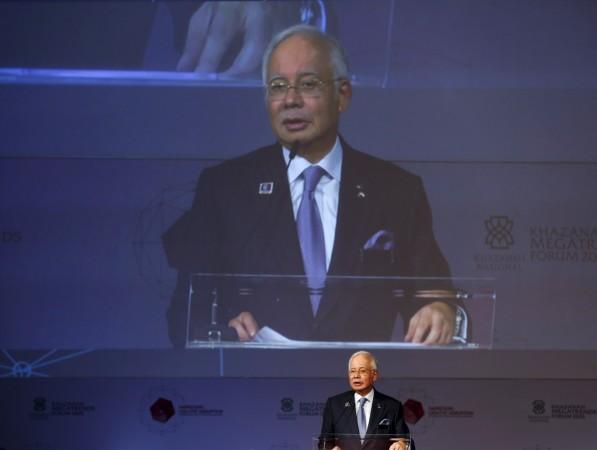
Malaysia's attorney-general cleared Prime Minister Najib Razak of any criminal offence or corruption on Tuesday, and said the controversial transfer of $681 million into his personal bank account was a gift from Saudi Arabia's royal family.
The leader of the main opposition party denounced the findings, which came after months of pressure on Najib to resign over the scandal, saying the appointment of the attorney-general by the prime minister himself suggested a conflict of interest.
The involvement of the Saudi royal family is an unexpected twist in the saga of the mysterious funds transfer and the troubles of indebted state fund 1Malaysia Development Berhad (1MDB), whose advisory board Najib chairs.
"I am satisfied with the findings that the funds were not a form of graft or bribery," Attorney-General Mohamed Apandi Ali told a hastily called news conference.
Apandi said in a statement $620 million was returned to the Saudi royal family in August 2013, about five months after the transfer, because it had not been utilised.
"There was no reason given as to why the donation was made to the prime minister, that is between him and the Saudi family," he said.
Apandi said no criminal offence was committed by Najib in relation to three investigations submitted by Malaysia's anti-graft agency and that no further action would be taken.
The Malaysian Anti-Corruption Commission (MACC) had earlier said the funds were a political donation from an unidentified Middle Eastern benefactor.
The attorney-general said in a statement he would return to the MACC papers pertaining to the three separate investigations with instructions to close all three cases.
At the height of the scandal in mid-2015, Attorney-General Abdul Gani Patail — who had led probes into 1MDB — was replaced by Apandi, a former federal court judge with strong ties to Najib's United Malays National Organisation (UMNO) party.
"The attorney-general should not have been involved in the decision affecting the prime minister because he was appointed by the prime minister," said Lim Kit Siang, parliamentary leader of the opposition Democratic Action Party.
"It was very controversial circumstances when Gani Patail was sacked. It is a conflict of interest," he said.
Najib, who has weathered repeated calls from opposition leaders and establishment figures to quit, has denied any wrongdoing and says he did not take any money for personal gain.
His office declined to make any comment on the attorney-general's findings.
The scandal has shaken investors in Southeast Asia's third-biggest economy and rocked public confidence in the coalition led by the UMNO, which has held power since independence in 1957.
However, Najib still enjoys the backing of most of the UMNO's powerful division chiefs. Even his fiercest internal critics, such as influential former prime minister Mahathir Mohamad, accept that he cannot be unseated.
Two of the anti-corruption commission papers that Apandi reviewed related to SRC International, a former 1MDB subsidiary that is being probed for an alleged misappropriation of funds worth 4 billion ringgit ($932 million).
A Wall Street Journal report, which Reuters has not verified independently, had said 42 million ringgit ($9.79 million) of the funds channelled into Najib's account originated from SRC.
1MDB is under investigation by law enforcement agencies in Switzerland, Hong Kong and the United States, media and sources have said.
There was no need for Malaysia to seek legal assistance from any foreign state in respect of the donation made to the prime minister's account, Apandi said, given his findings that no criminal offence had been committed.

















